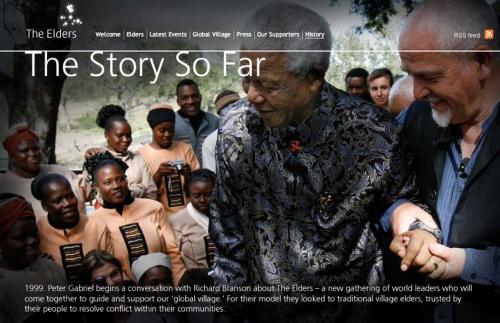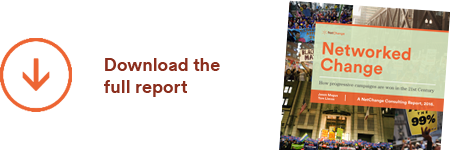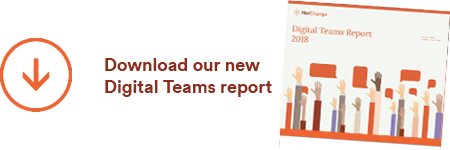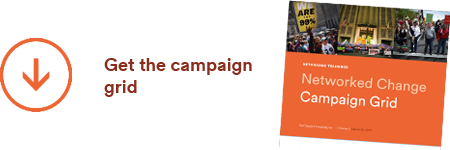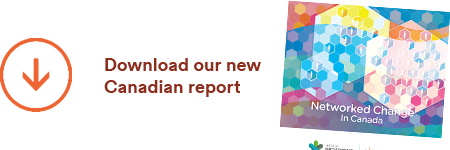About a month ago, I was enjoying a quiet Sunday lunch with my wife in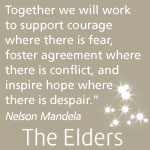 Kitsilano, my Vancouver neighbourhood, after a nice yoga class. While walking to the washroom, I checked my blackberry (come on, we all do this, right?) and in it was an email that reminded me why I love consulting work so much: your life can change on a dime. This dime was courtesy of the lovelyKathy Calvin, Senior VP at our client the United Nations Foundation, who we are working intensively with right now. Kathy asked me if I had heard of a new NGO calledThe Elders. She wanted to know if I would be interested giving a presentation on the Internet and its possibilities to support their global work. To the Elders themselves. In one month!
Kitsilano, my Vancouver neighbourhood, after a nice yoga class. While walking to the washroom, I checked my blackberry (come on, we all do this, right?) and in it was an email that reminded me why I love consulting work so much: your life can change on a dime. This dime was courtesy of the lovelyKathy Calvin, Senior VP at our client the United Nations Foundation, who we are working intensively with right now. Kathy asked me if I had heard of a new NGO calledThe Elders. She wanted to know if I would be interested giving a presentation on the Internet and its possibilities to support their global work. To the Elders themselves. In one month!
Of course I had heard of the Elders, who isn't familiar with their founding Elder, Nelson Mandela, or their Chair, Desmond Tutu? What I didn't know at the time was their history, the initial vision, and why it was such a powerful idea for these people to come together to work on the globe's most challenging issues. Nor did I know what role I would be asked to play in their unfolding story.
To understand the roots of his role we need to go back to the creation story of the organization itself. It all started with Peter Gabriel, who in addition to being a pretty fine rock star, has followed a powerful thread through his career: telling important stories and empowering voices of people who are not heard. He's done this through hisReal World Music, a record company many believe helped create the entire world music category, and through Witness, a global NGO that gives, in his words, "the tools of big brother to little brothers". Witness works globally to gives cameras and storytelling skills that empower people to document human rights and other abuses.
About 6 years ago, Peter had an idea that grew from an observation. While it's clear we now inhabit an interconnected "global village", where are our global leaders, looking out beyond narrow interests for the good of all humanity? Peter's vision was to create a high profile new force for good on the planet, that would not only work directly to ease suffering and end conflict situations, but also empower local leadership and community elders, creating more social change globally.
Peter teamed up with fellow Brit and uber-make-things-happen guy Richard Branson, and together they approached the world's most well-known and respected Elder, Nelson Mandela. Initially he said no: not enough time, not sure it would work, getting old. Peter and Richard persisted, and as the years passed, and the world continued to suffer from clear lack of global moral leadership, the idea became more and more irresistible.
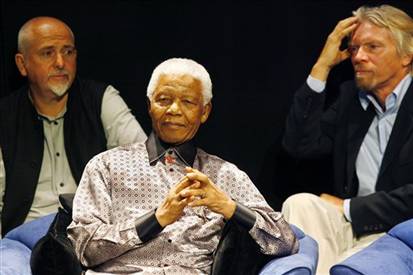 Last fall, their first hurdle was overcome: on Mandela's 89th birthday in South Africa, theyannounced the formation of a new global NGO, consisting of 12 "Elders of a Global Village": fiercely independent, wise, and fearless people who would work together to solve the hardest problems on the planet. As Gabriel told me, "the only power these people have is the respect and trust they have built through extraordinary lives". And as true elders, they are no longer bound by the limitations and perspectives of the governments, economies, or organizations they once led. Here are our Global Elders for a Global Village.
Last fall, their first hurdle was overcome: on Mandela's 89th birthday in South Africa, theyannounced the formation of a new global NGO, consisting of 12 "Elders of a Global Village": fiercely independent, wise, and fearless people who would work together to solve the hardest problems on the planet. As Gabriel told me, "the only power these people have is the respect and trust they have built through extraordinary lives". And as true elders, they are no longer bound by the limitations and perspectives of the governments, economies, or organizations they once led. Here are our Global Elders for a Global Village.
Other Elders include former UN head Kofi Annan, Archbishop Desmond Tutu, former President Jimmy Carter, former Irish President Mary Robinson, and 8 other esteemed global citizens. And all are commited to not only working to solve critical global issues, but approaching the work in an entirely new way, based on the beautiful African concept of Ubuntu, which can be translated as "I am because we are". More on that later.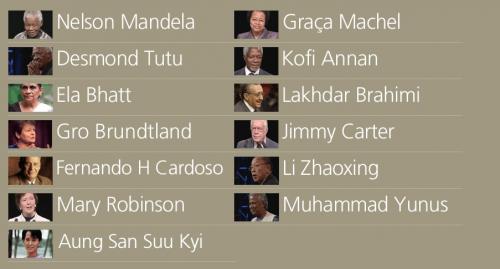
To power the work of the Elders and ensure their independence, they invited a select ground of "founders" to participate as funders, supporting their work while maintaining their independence. These incredible people and institutions include Branson, eBay co-founder Jeff Skoll, Gabriel, Humanity United, and the UN Foundation.
So now the team was gathered and its funders geared up to help. But the next challenge was even tougher: in a real village, an elders council lives close by, and can meet and be consulted easily. In a global village, how do you get 12 incredibly busy people (some sit on as many as 40 boards), spread all over the globe, and many in retirement, together to make decisions? With such incredibly time starved people, a lean operations team, and global issues rising like flashpoints, how would the organization get things done?
As important, how would they truly do things in a new way, modelling Ubuntu, and not getting stuck in the power politics of old? How would they involve real people in their solutions? How would they listen to communities around the world? How could their work empower local leaders and support those who will become the next generation of elders? Finally, how would they reach, involve, and moblilize citizens, on a global and local level, to support their behind the scenes work? And do all of this with such a small staff?
Big issues, big questions. The answer? Interestingly, that's where our team came in. You see, the web (and mobile) can do a lot of this, and quite elegantly so. This is one of the most well positioned organizations on the planet to be taking advantage of all that the web has to offer in support of their ambitious goals.
In my presentation at their Elders retreat on Necker Island (Richard Branson's island hideaway in the Caribbean) last week, I outlined a model for how the web will be one of the most powerful tools in their toolkit. How it will help them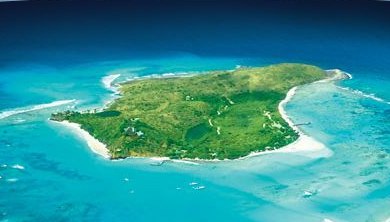 extend their reach, as far and as fast as they want it to go. How it will offer people all over the globe a chance to be heard and to make a meaningful contributionto solving some of the world's hardest problems. And finally, how it will be an organizing hub to use their incredible moral authority to connect, align, and mobilize disparate civil society, businesses, and individuals towards common, and BIG, social change goals.
extend their reach, as far and as fast as they want it to go. How it will offer people all over the globe a chance to be heard and to make a meaningful contributionto solving some of the world's hardest problems. And finally, how it will be an organizing hub to use their incredible moral authority to connect, align, and mobilize disparate civil society, businesses, and individuals towards common, and BIG, social change goals.
And all the while operating in an open, participative, collaborative, relationship-oriented way that supports the whole: Being Ubuntu. Conveniently (and the subject of a future blog post), Ubuntu is also the way digital networks work. The web is so perfect for not only the what but the how of their work. Brilliant!
You see, the Elders realize, to make real change, they can't do it alone. Even though they can call up virtually any political, corporate, or NGO leader on the planet, they know that real change only happens when communities – and individuals within them – feel empowered, feel heard, and have a chance to have meaingful involvement and own the change that needs to happen.
And this is where YOU come in. Connected, aligned, and mobilized through the web: together as ONE we can make a huge impact on the world's toughest problems. And learn a thing or two about inspired moral leadership at the same time.
Needless to say I am awed, and indeed deeply humbled, to collaborate with such people and help them with this work. I am taking on an ambitious role so look for more posts on this exciting project as it unfolds, and watch www.theelders.org as we aim to build a true global community for change online.
You are both invited to participate and indeed deeply required in order for this to succeed.

If you feel moved by this and want to get involved, please visit their "online global village" page on their temporary announcement site, join their email list, suggest issues, or nominate elders. Also any advice, ideas, or people for me to connect with to be of highest service are also greatly appreciated!

